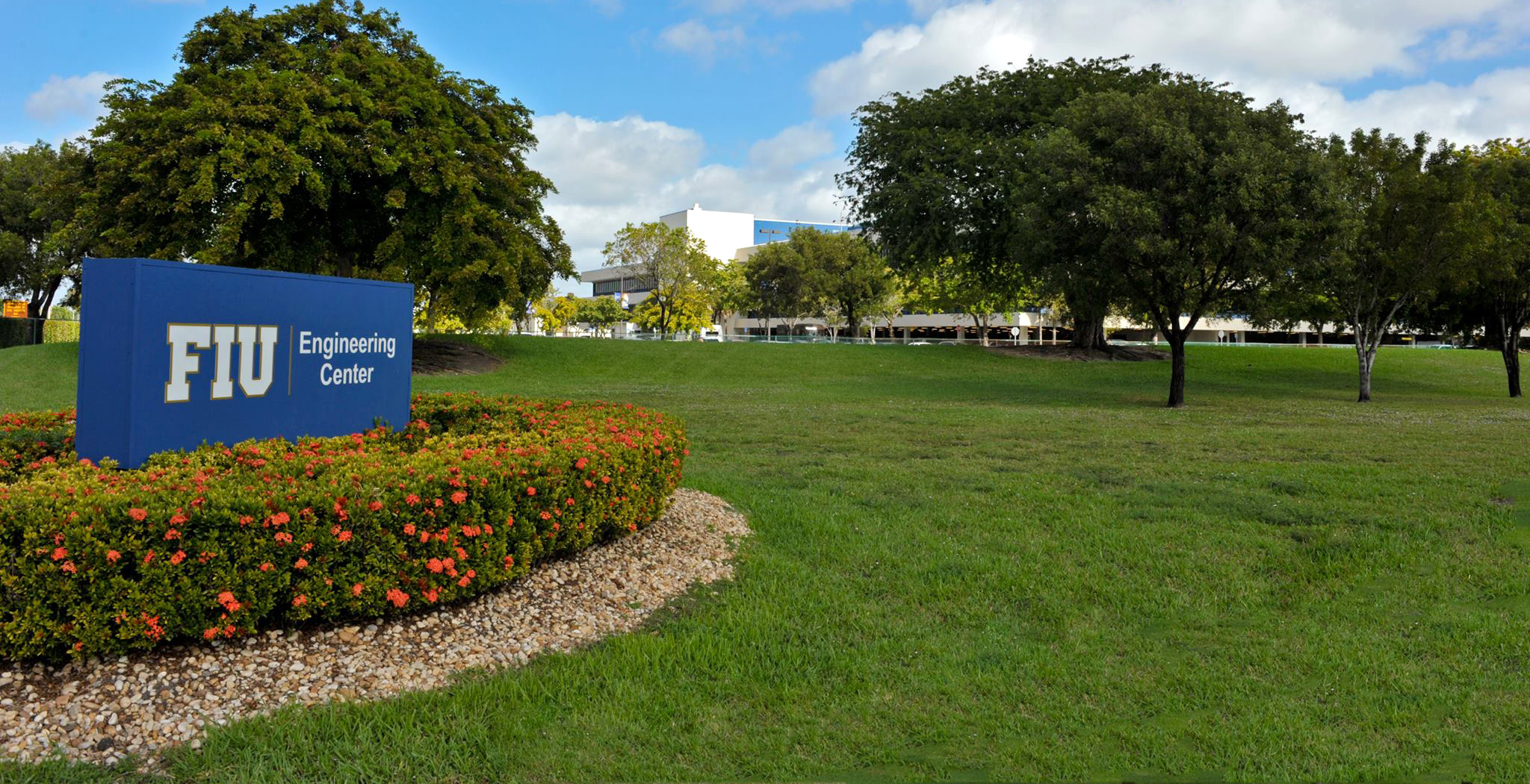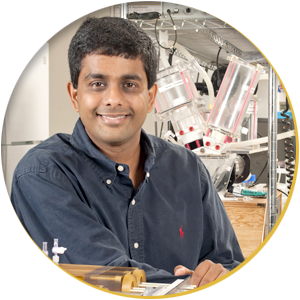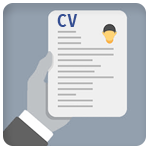
Sharan Ramaswamy, Ph.D.

Associate Professor | Certified Hybrid Instructor
 Research Interests: Cell and tissue mechanics with application in cardiovascular regenerative medicine
Research Interests: Cell and tissue mechanics with application in cardiovascular regenerative medicineResearch Advancements: Biomechanically-derived diagnostics and regenerative therapies for cardiovascular medicine.
Research Area: Engineered Tissue Model Systems
Lab: CV-PEUTICS - Cardiovascular Therapeutics Laboratory
Acknowledgement: Affiliated Faculty Member, NSF CELL-MET ERC Project (EEC-1647837)
Website: https://bme.fiu.edu/people/faculty-instructors/sharan-ramaswamy/
Biography
Dr. Sharan Ramaswamy earned a PhD in Biomedical Engineering (BME) from the University of Iowa in 2003. Following a post-doctoral fellowship at the NIH and a research faculty position at the University of Pittsburgh, Dr. Ramaswamy joined the BME department at Florida International University (FIU) in December 2009 as an Assistant Professor. He is currently a tenured Associate Professor at FIU. His research expertise is in the areas of Cardiovascular Mechanobiology, Regenerative Medicine and Mechanics. He directs the Cardiovascular Therapeutics Laboratory’s (CV-PEUTICS Lab), (formerly known as the Tissue Engineered Mechanics, Imaging and Materials Laboratory (TEMIM Lab)) at FIU. He has numerous scientific articles published in his discipline in leading journals, proceedings and book chapters. His work has been funded by the American Heart Association (AHA), the Florida Heart Research Foundation, the National Science Foundation (NSF), private industry and academia. He is a Fellow of the AHA and the American Society of Mechanical Engineers (ASME). Dr. Ramaswamy holds a patent in the area of bioreactors for cardiovascular regenerative medicine, a patent in materials and methods for accelerating cardiovascular tissue regeneration and a provisional patent in enhanced, stem cell-derived exosome production for the purposes of cardiac regeneration. He is a research advisor to several graduate and undergraduate students in the BME department at FIU.
Research
The Cardiovascular Therapeutics Laboratory (CV-PEUTICS LAB), formerly known as the TEMIM Lab’s primary research focus lies in the area of cell and engineered tissue mechanics with application in cardiovascular regenerative medicine. The CV-PEUTICS Lab, conducts both experimental and computational investigations in this area. A major goal of the lab is to develop functional valves with regenerative capacities (FVRC) using 1) porcine small intestinal submucosa (PSIS) substrates and 2) mechanically regulate stem cells for the FVRC application as well as for (3) broader application in cardiovascular regenerative medicine. Concurrently the CV-PEUTICS lab is also working towards the elucidation of mechanobiological cellular and molecular mechanisms that are involved in the etiology of valve diseases, particularly aortic valve calcification. Two specific projects in this area involve: (4) the delineation of flow conditions of the aortic valve that may serve to elucidate mechanosensitive pathways in vascular and valvular cells that lead to calcific aortic valve disease (CAVD), that in turn can be utilized for the development of an engineered CAVD tissue model system for drug discovery. (5) Computational biomechanical models that can help take predict the risk of heart valve calcification as well as the efficacy of new therapies to potentially remove valve calcification. The research in the CV-PEUTICS Lab has been supported by the AHA, the Florida Heart Research Foundation, NSF, industry and academic funding sources.
Selected Publications
2) Mirza A, Ramaswamy S: Importance of Non-Newtonian Computational Fluid Modeling on Severely Calcified Aortic Valve Geometries-Insights from Quasi-Steady State Simulations. J Biomech Eng. 2022 Nov 1;144(11):114501. doi: 10.1115/1.4054630.
3) Lin Y-M, Paolino L, Lou L, Herrera A, Pierre E, Agarwal A, Ramaswamy S: Directional dependence on concomitant pressure and volume increases during left ventricular filling, J Biomech. June 2022, Volume 138, 111129.
4) Gonzalez BA, Gonzalez MP, Scholl F, Bibevski S, Ladich E, Bibevski J, Morales P, Lopez J, Casares M, Brehier V, Hernandez L, Ramaswamy S: De Novo Valve Tissue Morphology Following Bioscaffold Mitral Valve Replacement in a Juvenile Non-Human Primate Model, Bioengineering (Basel) 2021, 8(7)-100. https://doi.org/10.3390/bioengineering8070100.
5) Gonzalez BA, Perez-Nevarez M, Mirza A, Perez MG, Lin Y-M, Hsu C-PD, Caobi A, Raymond AD, Hernandez MG, Fernandez-Lima F, George F, Ramaswamy S: Physiologically-Relevant Fluid-Induced Oscillatory Shear Stress Stimulation of Mesenchymal Stem Cells Enhances the Engineered Valve Matrix Phenotype. Front. Cardiovasc. Med., 2020, May 19;7:69. doi: 10.3389/fcvm.2020.00069.
6) Gonzalez BA, Pour Issa E, Mankame OV, Bustillos J, Cuellar A, Rodriguez AJ, Scholl F, Bibevski S, Hernandez L, Brehier V, Casares M, Rivas K, Morales P, Lopez J, Wagner J, Bibevski J, Agarwal A, George F, Ramaswamy S: Porcine small intestinal submucosa mitral valve material responses support acute somatic growth. Tissue Eng Part A. 2019 Dec 5. doi: 10.1089/ten.TEA.2019.0220.
7) Williams A, Nasim S, Salinas M, Moshkforoush A, Tsoukias N, Ramaswamy S: A “sweet-spot” for fluid-induced oscillations in the conditioning of stem cell-based engineered heart valve tissues. J Biomech. 2017 Dec 8;65:40-48. doi: 10.1016/j.jbiomech.2017.09.035. Epub 2017 Oct 7.
8) Ramaswamy S, Lordeus M, Mankame OV, Valdes-Cruz L, Bibevski S, Bell SM, Baez I, Scholl F. Hydrodynamic Assessment of Aortic Valves Prepared from Porcine Small Intestinal Submucosa. Cardiovasc Eng Technol. 2017, March; 8(1): 30-40.
9) Salinas M, Rath S, Villegas A, Unnikrishnan V, Ramaswamy S: Relative Effects of Fluid Oscillations and Nutrient Transport in the In Vitro Growth of Valvular Tissues, Cardiovascular Engineering and Technology, 2016 Jun;7(2):170-81. doi: 10.1007/s13239-016-0258-x. Epub 2016 Feb 8.
10) Ramaswamy S, Boronyak SM, Le T, Holmes A, Sotiropoulos F, Sacks MS. A novel bioreactor for mechanobiological studies of engineered heart valve tissue formation under pulmonary arterial physiological flow conditions. J Biomech Eng. 2014 Dec;136(12):121009.
